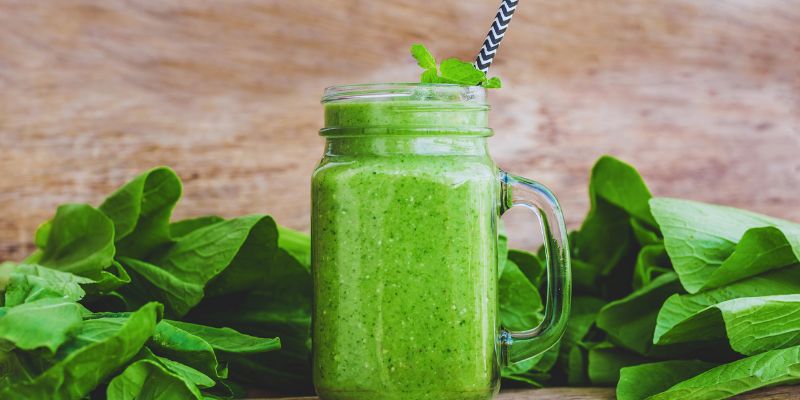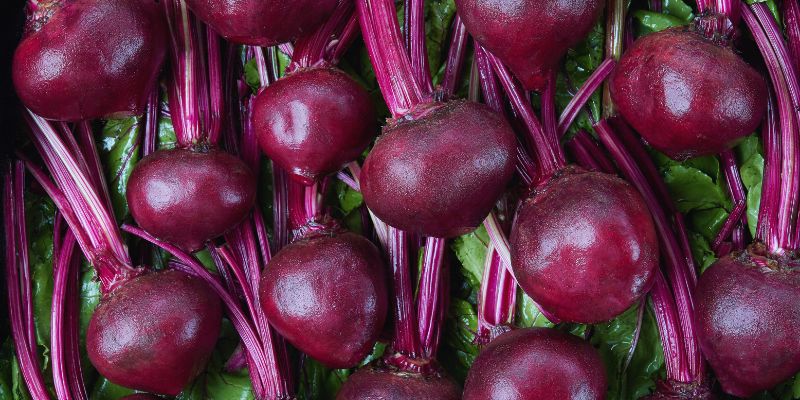What Are The Health Benefits of Spinach: Everything You Should Know
Advertisement
Spinach originated in Persia. It is a member of the amaranth family and is linked to quinoa and beets. The vegetable is a nutritious powerhouse, low in calories, high in vitamins and nutrients, and rich in fiber. Consuming spinach can lower blood pressure, minimize oxidative stress, fight cancer, and improve eye health.
If you dislike the sharpness of kale, spinach's mellow, earthy flavor is perfect for you. Adding spinach to meals is very simple, whether making a nutrient-dense smoothie or a filling soup. But before that, if you are excited to learn about the impressive benefits of this green vegetable, this article is for you!

Nutritional Profile Of Spinach
Spinach is loaded with various nutrients, and below is what you can get from one cup of raw spinach:
- Water: 27.4 grams (0.74% of the recommended daily value or DV)
- Calories: 6.9 kcal
- Protein: 0.858 grams (1.72% DV)
- Fat: 0.117 grams
- Carbohydrates: 1.09 grams
- Fiber: 0.66 grams (2.36% DV)
- Sugars: 0.126 grams
- Calcium: 29.7 milligrams (2.28% DV)
- Iron: 0.813 milligrams (4.52% DV)
- Magnesium: 23.7 milligrams (5.64% DV)
- Potassium: 167 milligrams (3.55% DV)
- Sodium: 23.7 milligrams (1.03% DV)
- Zinc: 0.159 milligrams (1.45% DV)

What Are The Health Benefits Of Spinach?
If you don't currently include spinach in your diet regularly, its numerous health advantages will motivate you to do so. Below are some of the main reasons for increasing your intake of spinach:
Oxidative Stress
An imbalance between antioxidants and free radicals is known as oxidative stress. Numerous antioxidants, including lutein, beta-carotene, and vitamin C, are abundant in spinach. Because antioxidants fight free radicals, this is crucial for general health. Chronic diseases (cardiovascular disease, cancer, and type 2 diabetes) are mostly caused by oxidative stress and cell destruction brought on by an accumulation of free radicals in the body. Free radicals are metabolic byproducts. However, antioxidants in spinach can reduce oxidative damage and maintain the functioning of your cells by fighting free radicals.
Protects Eyesight
Various antioxidants, including lutein, beta-carotene, and vitamin C, are abundant in spinach. These antioxidants aid in preventing sun damage to your eyes. Additionally, they might reduce your chance of developing eye conditions, including age-related macular degeneration (AMD). The clear, center vision needed for reading and driving may become blurred due to this eye condition. One of the main causes of vision loss in adults over 55 is AMD. According to one study, consuming half a cup of frozen spinach daily for two months raises eye pigment and lutein content. Your risk of macular degeneration may be reduced by having high pigment levels.
Cancer Prevention
Vegetable-rich diets, particularly those green leafy vegetables like spinach, have a slight protective impact and lower cancer incidence. Chlorophyll, a pigment that gives plants a green color, is found in spinach and other green crops and has anticancer properties. Spinach's glycolipids can kill cancer cells or at least halt their growth. Additionally, spinach contains polyphenols like lutein and kaempferol, which have strong antioxidant properties. They help stop the growth of cancer cells in the breast, colon, esophagus, prostate, and liver.
Lowers Blood Pressure
Spinach's high potassium content relaxes blood arteries, lowering blood pressure. Additionally, potassium aids in the kidneys' removal of excess salt. "Excess sodium and high blood pressure can cause injury to the kidneys, cardiac conditions, and stroke." Folate, a B vitamin, and magnesium are abundant in spinach—these nutrients produce nitric oxide, a blood pressure-lowering chemical.
Additionally, spinach contains nitrates, which widen blood arteries. It improves blood flow and reduces blood pressure, both beneficial for hypertensive patients. One study showed that participants' blood pressure decreased for five hours after consuming a spinach drink.
Improving Skin Appearance
Spinach can help combat the free radicals that lead to skin aging because it is high in antioxidants such as beta-carotene and vitamins A, C, and E. Spinach's vitamin C promotes the formation of collagen, which lowers drooping and the visibility of wrinkles and expression marks. The leafy green also contains vitamin A, which shields the skin from UV radiation from the sun. Additionally, spinach's high water content keeps the skin moisturized. Antioxidants preserve the skin from harm caused by pollution, eventually producing a more radiant complexion.
Improves Gut Health
Spinach's high fiber level, which promotes regular digestion and the proper functioning of your gut microbiota, is another important health advantage. There are two kinds of fiber: soluble and insoluble. "Insoluble fiber, or fiber difficult for the body to digest, is found in spinach." Fiber gives stool more volume, facilitating passage and may lessen irregularity and congestion. Insoluble fiber is also linked to greater post-meal satisfaction, so this leafy green may help you feel healthier and fuller for longer.
Aid In Weight Loss
It would help you burn more calories than you take in to lose weight. You must figure out the correct diet and exercise routine to reduce weight. Spinach is one of the foods you may use to reduce weight more quickly. It has a few calories. So, it is an ideal supplement to weight loss diets because each 100 g of raw or cooked leaves contains about 23 calories. It also has fiber, which decreases appetite and makes you satisfied. Thylakoids are plant chemicals in spinach that may help lessen sweet cravings. Thus, spinach will help you maintain a healthy calorie intake while giving you adequate fiber.
Boosts Brain Health
Eating spinach can keep your mind active. It is abundant in antioxidants and anti-inflammatory substances like lutein and vitamin E, which guard against neuronal damage. Spinach can also maintain brain function and shield the brain from age-related neurodegenerative illnesses like Alzheimer's. A half-cup portion of cooked spinach or other leafy greens per day decreases memory loss caused by age. The high concentrations of antioxidants, folate, and phylloquinone, a kind of vitamin K present in leafy greens, protect brain cells.
Conclusion:
Iron, potassium, magnesium, and vitamins C and E are abundant in spinach. These nutrients support heart, brain, and eye health and defend against oxidative stress. It can improve the digestive system, boost the immune system, and may have anticancer effects when included in a healthy diet. Spinach can be used in almost any recipe. Try it out to get the vitamins, minerals, and antioxidants that are good for your health.
Advertisement












